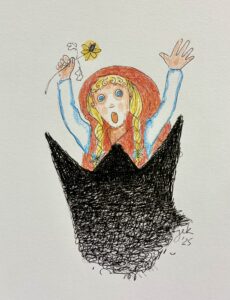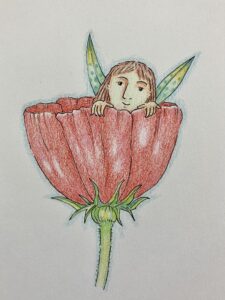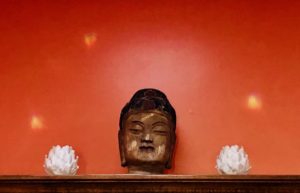
-Artwork © 2025 Jan Ketchel
When we get triggered we are involuntarily seized by the power of an archetype. Archetypes are the core building blocks of human experience that lie dormant in the ocean of our shared collective unconscious until called forth to define and respond to a situation we encounter.
The terror of a trigger is a tidal wave of emotional archetypal energy that floods both body and mind with panic. “Who knows what evil lurks in the hearts of men? The Shadow knows!” is an apt definition of the Shadow archetype, as presented by the 1930’s radio mystery series. When we are caught off guard by an encounter, the Shadow archetype—the mystery and danger of the unknown—is activated, and we are in its grip.
Jung defined the shadow globally as everything that we are but don’t know about, which exists in the dark; hence, the term, shadow. Many things that exist in this dark region of the unconscious mind are purposely kept there because they evoke both fear and anxiety, which greatly compromise our stability and ability to function.
We are all frozen children in relation to our triggers. A child state is one of innocence. Shadow shatters innocence. We are no longer safe. We then install the protection of constrictive body armor. Our freedom of movement is checked by insistence of advance notice of everything. Our breath is shallow and often held. Our mind is either hypervigilant or not present at all.
The normal child state precedes the age of responsibility. The child, by definition, is taken care of. The overpowering danger of the greater world is held in abeyance until it is confronted by the shadow of the unexpected. When our adult state of confidence and autonomy is overpowered, we too become like children, overwhelmed by the unknown.
If we choose childlike defenses, we are caught in the existential kink of anguish, which contains the emotions of archetypes, generating the illusory belief that we are in control. Truthfully, however, we are like children playing hide and seek. We are victims, clinging to the child state of non-responsibility. We become like Little Red Riding Hood, haunted by the shadow of the Big Bad Wolf.
To defuse the power of archetype, we must first be willing to turn on the light in the shadow. This can be initiated by stating the intent to master the unknown trigger. Here, consciousness is taking a stand and presenting a suggestion to the subconscious mind. Previously, the subconscious mind was given the suggestion to avoid the trigger. That became its marching order and, consequently, an automatic habit.
This intent mobilizes the subconscious mind to channel the High Self, who then arranges a series of experiences tailored to achieve the necessary steps toward mastery. These experiences will show up in outer synchronicities, dreams and relationships. Slowly, the shadow archetype will be refined to reveal other archetypes that are the root causes behind the trigger.
For example, fear of approaching a woman might reveal the overwhelm of the Goddess archetype in all her piercing beauty; or terror of the Witch archetype, who threatens to castrate. Reflection on the terror experienced with an authority figure might reveal an encounter with a God archetype like Kronos, who would not even grant his children life.
The basics of achieving dominion over shadow require that we, as ego, undertake the Hero’s Journey. This will likely require that we revisit the triggers many times, as we gradually desensitize from them. When a trigger actually becomes boring, we are freed of emotional disruption. We are done.
There may be many other tasks to complete, as well, such as talking with or confronting someone, despite our trepidations. Inner mastery of the central nervous system through various kinds of breathing practices and body practices will support challenging tasks and build needed confidence.
Perseverance in all of these practices will eventually lead us to neutralize and integrate the shadow of all of our triggers. With this comes the restoration of a child’s innocence in the personality, coupled with an adult knowing that indeed, we can navigate the big bad world with truth and right action, the essence of love and wisdom.
Reflecting,
Chuck


